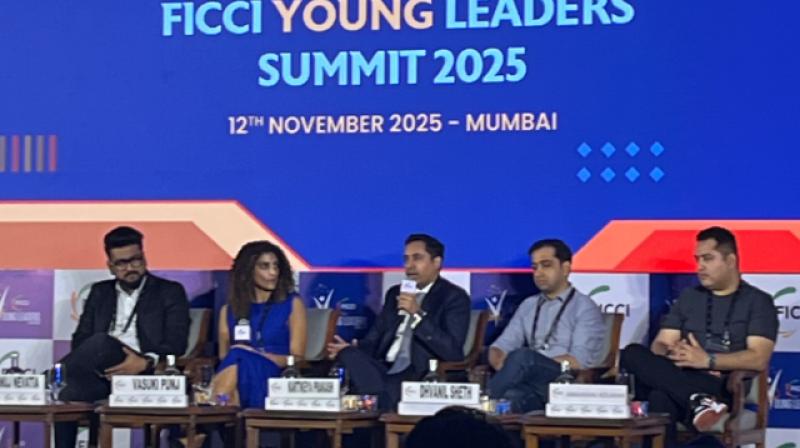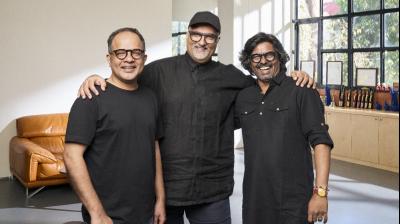The FICCI Young Leaders Summit 2025, held in Mumbai, featured a session targetted at founders of companies as it looked to address what each of them should know. The panel was moderated by Kartikeya Prakash, partner, Khaitan & Co., and featured Vasuki Punj, founder, Frozen Fun Gelato; Himanshu Adlakha, founder, Winston; Dhvanil Sheth, founder, Skillmatics; and Anuj Nevatia, founder, Bacca Bucci, and discussed India’s evolving business and regulatory landscape.
The panel delved into the legal, operational, and structural frameworks that shape entrepreneurial journeys - from intellectual property protection to regulatory compliance and scaling challenges.
Opening the discussion, Nevatia reflected on the one challenge he hadn’t foreseen when starting his entrepreneurial journey with Bacca Bucci.
“In the early years, we underestimated the importance of IPs and design protection. Whatever we created used to get copied overnight. That’s when we realised that we need to protect our designs. When one is scaling a consumer brand, it’s vital to protect the designs and creative identity,” he said.
Building on the above viewpoint, Punj shed light on lesser-known challenges that offline-first brands face.
“Coming from a legal background, legal and compliance were always top of my mind, but I had no experience in commercial contracts, especially short-term lease contracts for kiosks and stores,” she explained. “The real challenge was not the paperwork but the people; choosing the right landlords mattered more than even the location itself.”
Emphasising the fragmented licensing system across states, Punj steered the conversation toward the regulatory hurdles that continue to challenge the F&B industry.
“The same license often needs approval from three different departments. Regulations differ from city to city. Having a single, unified process would make life a lot easier ,” she remarked.
Drawing a comparison between India’s ice cream market, valued at USD 3.5 billion, and the USD 22 billion US industry, Punj highlighted the operational complexities of managing a temperature-sensitive product.
“Cold chain logistics is a huge pain point in India. If one has built a great product, but it doesn’t reach the customer in a great condition, all the effort is futile. In India, it’s much easier to send a frozen product, but maintaining a product at a certain temperature becomes a challenge.”
Nevatia echoed similar concerns, calling for a more streamlined compliance interface.
“As founders, we want to be compliant, but the process is complex and time-consuming. Even getting the right consultancy is hard,” he said.
“The new BIS licensing norms in the footwear category are a big shift for us. Promoting ‘Make in India’ is commendable, but our domestic manufacturing infrastructure lags behind in producing the best sneakers at the price points we offer. If the process becomes more structured, it would be great for the companies,” added Nevatia.
Sheth reflected on the evolving funding ecosystem for startups.
“It’s definitely easier to raise capital now than it was nine years ago,” he said.
“At the seed stage, investors look for market opportunity and product differentiation. But as one moves to Series A or B (funding), they need to show organisational maturity and viable unit economics. There has to be a certain leadership team that’s being built across core functions.”
Sheth further noted that founders must constantly evolve with each funding stage. “You can’t have co-founders running every function. You need a leadership team that can absorb and deploy capital effectively,” he said.
Adlakha concluded the session by reflecting on the current state of entrepreneurship in the Indian ecosystem.
“A founder’s panic mode is always on. The government is taking steps to ease processes, but it will take time. Fortunately, today’s investors are more patient; they allow founders to focus on building rather than rushing into expansion.”

.jpg)










